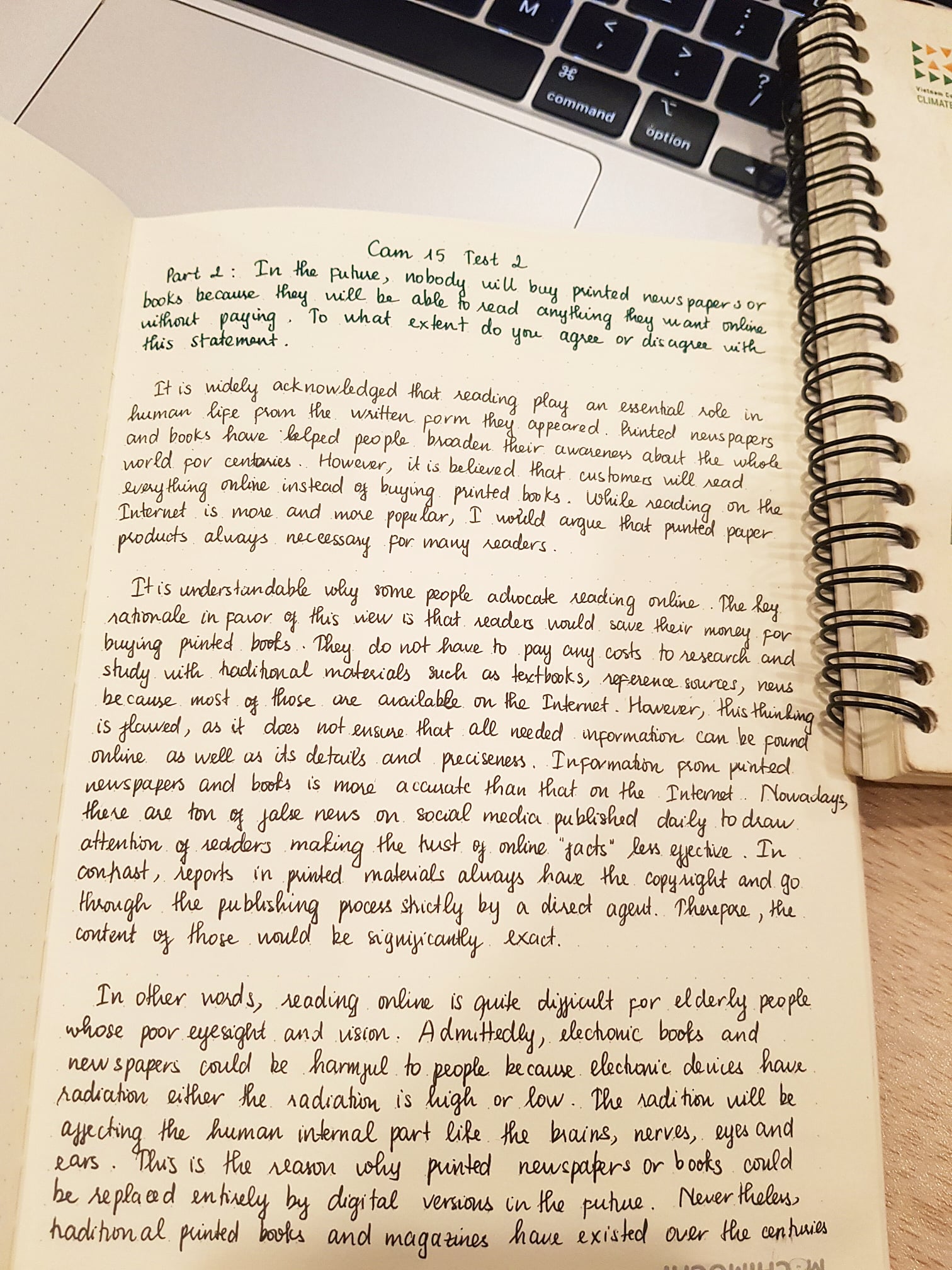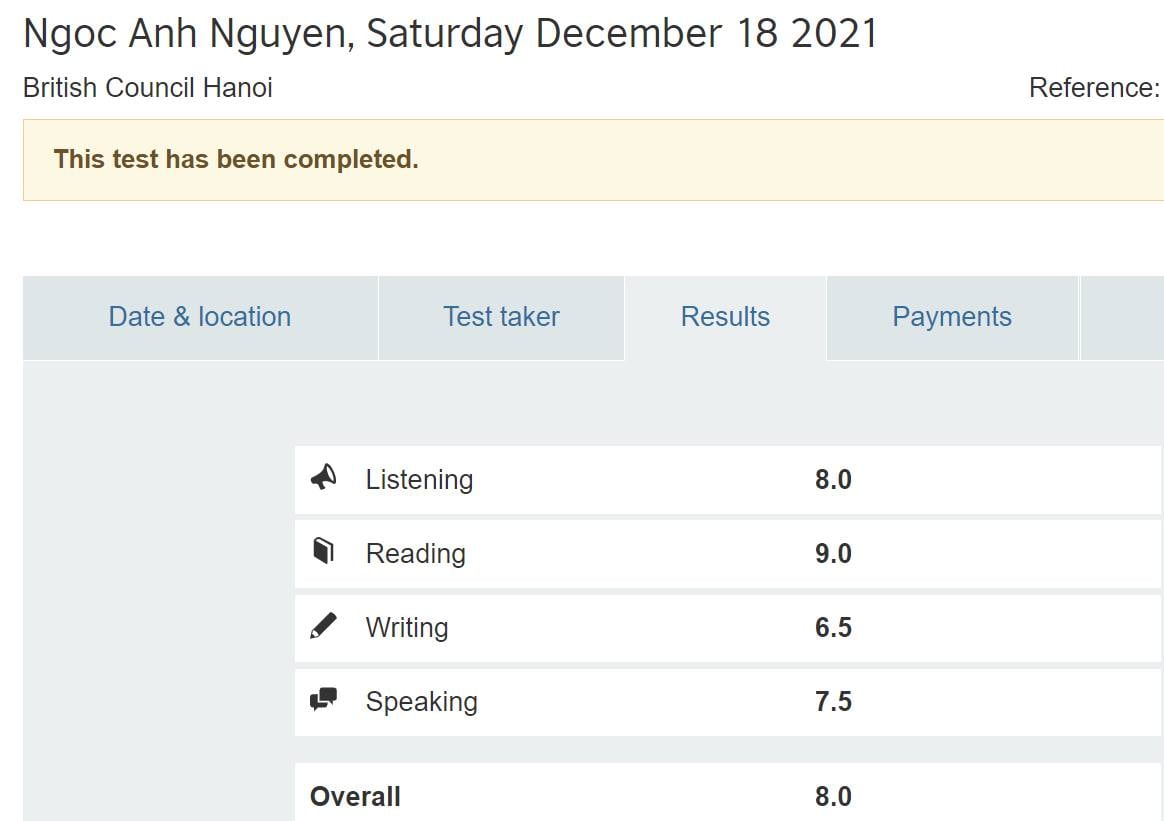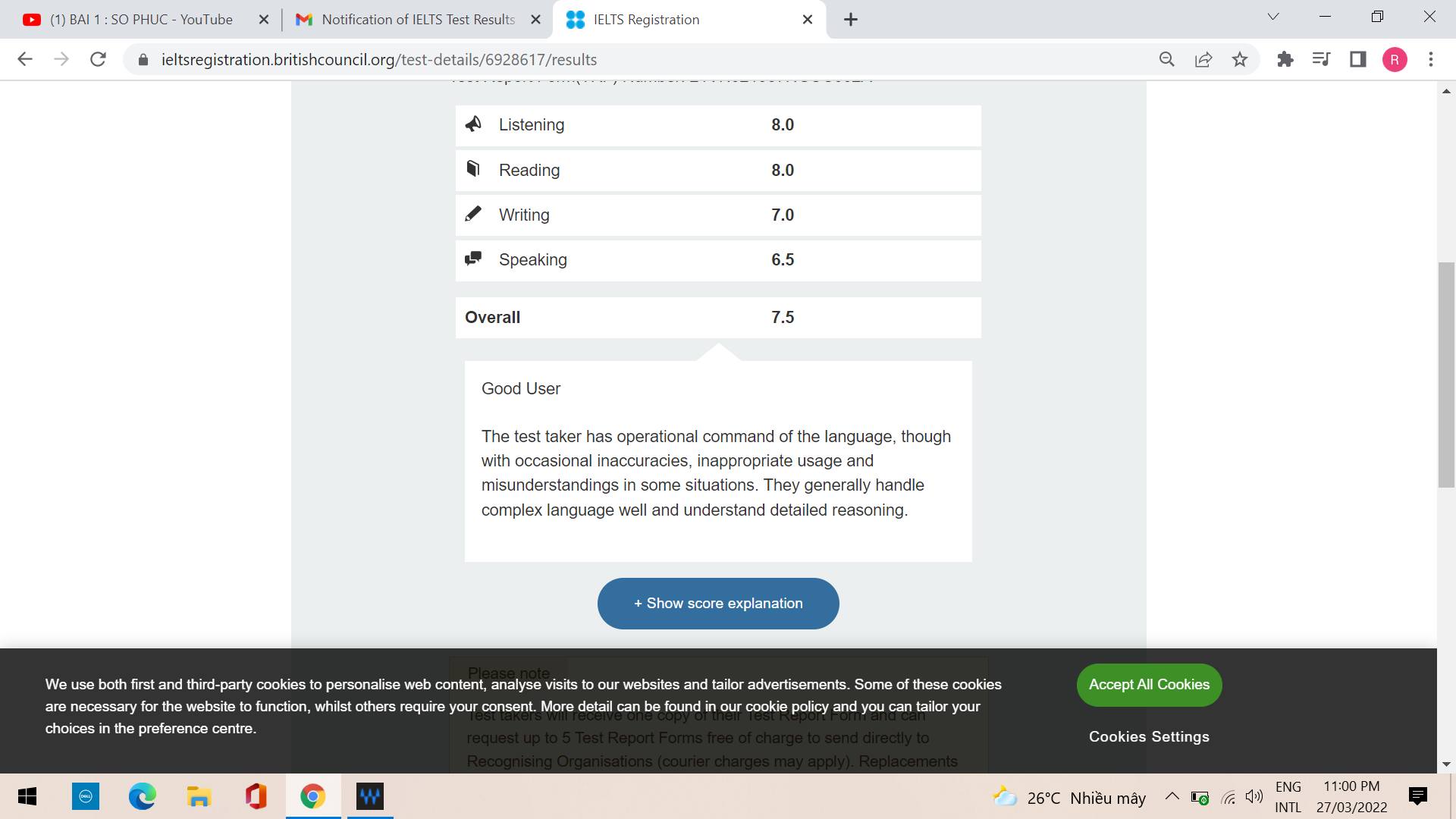Cũng giống như “Invention”, “History” có thể là một cơn ác mộng với các chiến binh IELTS. Nhưng IELTS tin rằng với “Historical events” và “Historical figures” thì chủ đề này sẽ không làm khó các bạn nữa đâu.
Với các sự kiện và nhân vật lịch sử thì có thể 2 subtopics này đã bao gồm gần như toàn bộ những câu hỏi chủ yếu mà giám khảo có xu hướng ra đề trong chủ đề này.
1. HISTORICAL EVENTS (Sự kiện lịch sử)
Part 1
Do you like to learn about history? (Bạn có thích học lịch sử không?)
| Sample answer | Vocabulary | |
| (Answer) Wow, I am into reading history, not only of our country, Vietnam but also other countries in the world. (Reason) History is not only a subject to me, it is also a source of invaluable information about our origin as well as the victorious past of our ancestors. | Origin (n) | Cội nguồn |
| Victorious past (n) | Quá khứ hào hùng | |
| Ancestors (n) | Tổ tiên | |
Part 2
Describe a historical event that you like the most. (Mô tả mọt sự kiện lịch sử mà bạn thích nhất)
| Sample answer | Vocabulary | |
| (Answer) Honestly speaking, everytime I am asked about history, I am always eager to talk about Vietnam war, which ends in 1975 and one of the historical highlights of our country. Vietnam undergone hundreds of years under the colonization of foreign invaders and this is the last war before a new era of peace and independence is opened for us.
(Reason) It is an unforgettable period of history for some reasons. Firstly, it is the courageous fighting spirit of Vietnamese people. (Example) Our country was divided into Nothern part and Southern part. Communication was almost impossible at that time and people across the country were living in poverty and destitute conditions. However, our soldiers still fought bravely with the support from ordinary people. (Reason) Secondly, this is remarkable because hardly anyone could think that we could win the war. (Example) When compared to such a well-armed country like America, it was hard to think that we could defeat them. However, with the determination of the whole nation, we have our own peace. April 30th, 1975 was the date that we gained independence from the invaders and from then on, we have held annual celebration to pay tribute to those who sacrificed for the country. I hope that Vietnamese people will never forget this important event of the nation. |
Historical highlights (n) | Sự kiện lịch sử nổi bật |
| Colonization (n) | Sự thuộc địa hóa | |
| Foreign invaders (n) | Giặc ngoại xâm | |
| Independence (n) | Độc lập | |
| Period of history (n) | Giai đoạn lịch sử | |
| Well-armed (adj) | Trang bị vũ khí tối tân | |
| Defeat (n) | Đánh bại | |
| Pay tribute to (Sb) (v) | Tưởng nhớ | |
| Sacrificed (v) | Hy sinh | |
Part 3
What can we learn from the events in history? (Chúng ta học được gì từ các sự kiện lịch sử?)
| Sample answer | Vocabulary | |
| (Answer) I think we can have many lessons from historical events. (Example) For example, if we read about the Great Depression in America from 1929 to1933, we can know more about the economy and crisis in certain periods. In other cases, if we study war, there will be knowledge related to domination or weapons. However, above all, the most important lesson is that each historical event is either a mistake or a pride, we should look at them carefully to improve our strengths, to maintain the pride and not to let the mistakes occur again. | Domination (n) | Sự đô hộ |
NOTICE
| Glossary Box | |
| Origin (n) | Cội nguồn |
| Victorious past (n) | Quá khứ hào hùng |
| Ancestors (n) | Tổ tiên |
| Historical highlight (n) | Sự kiện lịch sử nổi bật |
| Colonization (n) | Sự thuộc địa hóa |
| Foreign invaders (n) | Giặc ngoại xâm |
| Independence (n) | Độc lập |
| Period of history (n) | Giai đoạn lịch sử |
| Well-armed (adj) | Trang bị vũ khí tối tân |
| Defeat (n) | Đánh bại |
| Pay tribute to (Sb) (v) | Tưởng nhớ |
| Sacrifice (v) | Hy sinh |
| Domination (n) | Sự đô hộ |
2. HISTORICAL FIGURES (Nhân vật lịch sử)
Part 1
How did you learn history when you were young? (Bạn học lịch sử như thế nào khi còn nhỏ?)
| Sample answer | Vocabulary | |
| (Answer) Actually, when I was a child, I only learnt history through a text book but at that time I was not so interested in it because there were so many things that I had to remember. (Example) Then my grandfather took me to a bookstore to buy books in history and I have developed an interest in historical figures such as King Le Loi or Heroine Vo Thi Sau. | Historical figures (n) | Các nhân vật lịch sử |
| Heroine (n) | Nữ anh hùng | |
Part 2
Describe a historical figure that you find the most impressive. (Mô tả một nhân vật lịch sử bạn tháy ấn tượng nhất)
| Sample answer | Vocabulary | |
| (Answer) If someone asks me about one historical figure that I like the most, it will definitely be President Ho Chi Minh. I am sure that President Ho is admired and loved not only by Vietnamese people but also residents in other countries around the world. He is a prominent leader and he led many resistances that defeated foreign invaders to bring peace and protect national sovereignty. (Reason) President Ho is well known for leading a simple life and spending all his life fighting for the happniess of Vietnamese people and the independence of the nation. (Example) He was born into an impoverished but intellectual family in Nghe An province so he could understand the misery and poverty that were caused by war to Vietnamese people. Therefore, at a very young age of early twenty, he decided to go to some foreign countries to find a way to save the country. He went through a lot of ups and downs but with his decisiveness and patriotism, he came back to Vietnam with innovative ideas to improve the policies as well as eliminate invaders.
President Ho had achieved a lot in his life of doing politics; however, he never thought for himself only, he helped other people till the end of his life. Now there are many memorials of President Ho in different countries for people to honor one of the greatest men in the world’s history. |
Prominent leader (n) | Lãnh tụ kiệt xuất |
| Resistances (n) | Kháng chiến | |
| Foreign invaders (n) | Giặc ngoại xâm | |
| Sovereignty (n) | Chủ quyền | |
| Misery (n) | Nỗi khổ | |
| Ups and downs (n) | Thăng trầm | |
| Decisiveness (n) | Kiên định | |
| Patriotism (n) | Lòng yêu nước | |
| Policies (n) | Chính sách | |
| Eliminate invaders (v) | Đánh đuổi giặc ngoại xâm | |
| Memorials (n) | Đài tưởng niệm | |
| Honor (v) | Tôn vinh | |
Part 3
Do you think historical museums should be opened for free? (Bạn có nghĩ rằng các bảo tàng lịch sử nên mở cửa miễn phí không?)
| Sample answer | Vocabulary | |
| (Answer) Well, it is of great importance for people, especially young people to learn history of their own country. Historical museums, where valuable traditions are preserved and these are ideal places for people to cherish the past. (Reason) I think it’s better to reduce the entrance fee to historical museums because they need a certain amount of money to be operated. (Example) Local officers should have special offers for those when they come to museums as a way of encouraging people to learn history. In addition, it is a good idea that more historical shows TV are produced to make history an important part in people’s life. | Valuable traditions (n) | Truyền thống quý báu |
| Preserved (v) | Lưu giữ | |
NOTICE
| Glossary Box | |
| Historical figures (n) | Nhân vật lịch sử |
| Heroine (n) | Nữ anh hùng |
| Prominent leader (n) | Lãnh tụ kiệt xuất |
| Resistance (n) | Kháng chiến |
| Foreign invaders (n) | Giặc ngoại xâm |
| Sovereignty (n) | Chủ quyền |
| Misery (n) | Nỗi khổ |
| Ups and downs (n) | Thăng trầm |
| Decisiveness (n) | Kiên định |
| Patriotism (n) | Lòng yêu nước |
| Policy (n) | Chính sách |
| Eliminate invaders (v) | Đánh đuổi giặc ngoại xâm |
| Memorial (n) | Đài tưởng niệm |
| Honor (v) | Tôn vinh |
| Valuable tradition (n) | Truyền thống quý báu |
| Preserve (v) | Lưu giữ |
Tham khảo:
1. “To keep something as it is, especially in order to prevent it from decaying or being damaged or destroyed”: Tham khảo định nghĩa trong từ điển Online Cambridge.
2. “An object often large and made of stone that has been built to honor a person or event”: Tham khảo định nghĩa trong từ điển Online Cambridge.



